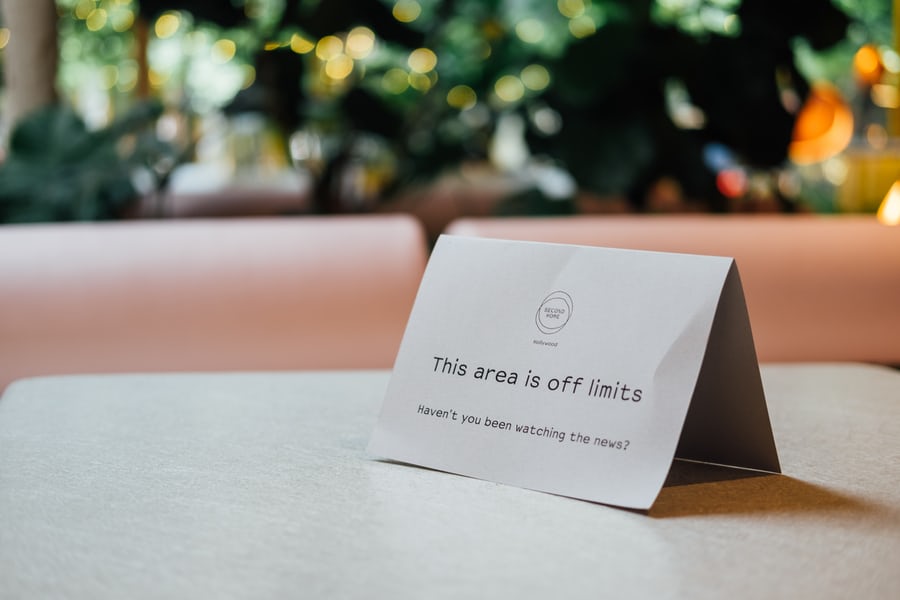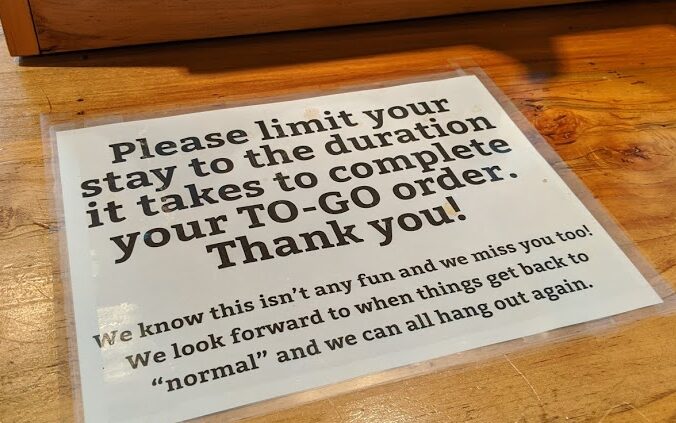Applying for PPP Forgiveness

Starting in August, the Small Business Administration (SBA) began accepting applications to have loans that were issued forgiven and in early October began issuing forgiveness to those that were approved. More than $500 billion in forgivable loans were issued through the government’s aid initiative. As small business owners across the nation continue to submit applications, the Alliance to Save the American Dream has several key tips for small business owners to acknowledge before doing so.
Prior to applying, those who borrowed from the Paycheck Protection Program should contact the same lender who issued the loan. The lender will submit your application to the SBA where the level of forgiveness is determined.
The top PPP lender, JPMorgan Chase, emails customers on a limited basis and invites them to begin the application process based on when they received their loan.
“This has helped us test the SBA’s submission process and identify some common pitfalls that we can help customers avoid,” Jen Roberts, chief executive of Chase Business Banking, said in an interview with The Wall Street Journal.
Small business owners who are seeking forgiveness may have to wait for their lender to implement the proper technology and personnel before they begin accepting applications.
In order to have the full amount forgiven, PPP borrowers will have to show that at least 60% of their loan is used to cover payroll costs and that the remainder of the loan is used to fund costs such as rent and utilities. The amount could be lowered if owners cut wages or laid-off employees.
Borrowers should first focus on payroll expenses, as PPP loans can be forgiven based solely on that. The SBA and Treasury Department have three different application forms.
The full forgiveness application and the EZ application both involve calculating the borrower’s forgiveness amount, accessing how closely you followed program guidelines and submitting supporting documentation as needed. Only certain borrowers are eligible to complete the EZ application, such as those who are self-employed or those who maintained wages and employee count at required levels.
Form 3508S, the third application, is for loans of $50,000 or less and will streamline “the PPP forgiveness process to provide financial and administrative relief,” the SBA said.
Visit our resources page to view each application and to determine which best suits you and your business.
The Alliance to Save the American Dream is a non-profit organization dedicated to three core goals.
1. Develop an Ideas Factory to give small businesses and industries a centralized place to share innovative ideas that must be considered.
2. Build a unique Resources portal for small businesses to go to for answers or resources that address a wide range of issues or challenges.
3. Offer a new networking opportunity for small business owners to connect while also giving them a platform to share their own personal stories.
For more information, visit savetheamericandream.com.
Restaurateurs: Fighting for Survival

Winter is coming and restaurant owners across the nation are bracing themselves for the cold months ahead.
During citywide lockdowns, restaurants adapted quickly to save their businesses. From takeout to advertising delivery services, small business owners reinvented their business models.
As restaurants slowly began to reopen, outdoor dining was essential. Governors reduced or prohibited indoor dining in the initial reopening plans and restaurant owners were forced to quickly adjust to the new rules. On Sept. 30, New York restaurants were permitted to reopen dining rooms at 25% capacity.
“I just think people feel safest outdoors, and we are wanting to really be able to accommodate them,” Laura Garcia said in an interview with The Wall Street Journal.
Garcia, the general manager of Ninetwentyfive based in Wayzata, Minn., said the restaurant is adding 7-foot-tall heated igloos and retractable shades to trap heat in order to stay in business throughout the winter months.
The critical changes that businesses are making will be key to keeping their lights on. For Kim Bartmann, owner of Tiny Diner based in Minneapolis, opting to close for the winter due to the costs exceeding predicted sales was her only choice.
“Here in Minnesota you can only tough it out eating outside for so long,” she said in an interview with The Wall Street Journal.
In a recent study, the National Restaurant Association predicts that an estimated 100,000 of the 1 million restaurants and bars will permanently shut their doors by the end of 2020.
These devastating results do not highlight the investment that communities had been making throughout the years prior to the global pandemic.
According to data compiled by the National Main Street Center from nearly 1,000 communities between 2015 and 2019, it was discovered that U.S. towns with populations of 25,000 or less invested more than $20 billion in public and private funds. This investment led to more than 28,000 new businesses and approximately 106,000 new full-time and 25,000 part-time jobs.
Small businesses will continue to fight for their survival. One community at a time.
The Alliance to Save the American Dream is a non-profit organization dedicated to three core goals.
1. Develop an Ideas Factory to give small businesses and industries a centralized place to share innovative ideas that must be considered.
2. Build a unique Resources portal for small businesses to go to for answers or resources that address a wide range of issues or challenges.
3. Offer a new networking opportunity for small business owners to connect while also giving them a platform to share their own personal stories.
For more information, visit savetheamericandream.com.
Fighting for Representation

Small businesses wear many hats. They hold communities together, they power economies, they represent the true meaning of determination and most importantly: they represent the American dream.
From San Francisco to Hartford, small businesses across the country faced immense challenges and immeasurable blows to their livelihoods when cities were forced to lockdown amid the Covid-19 pandemic. The nationwide shutdown highlighted the disconnect between elected officials and local business owners.
“It’s getting harder and harder to hold on. (I’m) cautiously optimistic, I would say,” Karie Bennett, Atelier Studio and Salon owner and founder based in San Francisco, said in an interview with CBSN Bay Area. “We’ve had quite a lot of back and forth; that whiplash we’ve all been feeling (as) business owners.”
When state officials reconvened to launch a reopening plan, there was a voice left out of the conversation: small business owners. In Connecticut, Governor Ned Lamont announced a Reopen Connecticut Advisory Group in March that invited local health, business, workforce and education experts to consult with the Lamont administration. Those very conversations were used to inform his decisions on the reopening of the state. Everyday people were isolated as the decisions that impacted the future of their businesses were made. It is time that these individuals have the opportunity to join together as Americans and lead their communities once again, united in their shared enterprise.
“Small businesses are the backbone of our communities and local economies. They have worked hard to reopen in a way that can keep their customers and staff safe. It would be nice to see that hard work reciprocated from Gov. Whitmer’s office,” Matt Hall, a member of the Michigan House of Representatives, said in an interview with mlive.com.
In May, Facebook released a report following a survey that interviewed 86,000 small and medium-sized business owners, managers and employees for the World Bank and Organization for Economic Cooperation and Development’s data initiative. The report found that 45% of owners of business owners would rehire the same workers that were let go, while a third of closed businesses shared that they do not expect to reopen.
There is no doubt that small businesses make some of the toughest decisions to adapt. They strategize and step up to each challenge that arrives at their door. Join us, as we work to recognize the rising stakes. We are eager to have your voice heard.
The Alliance to Save the American Dream is a non-profit organization dedicated to three core goals.
1. Develop an Ideas Factory to give small businesses and industries a centralized place to share innovative ideas that must be considered.
2. Build a unique Resources portal for small businesses to go to for answers or resources that address a wide range of issues or challenges.
3. Offer a new networking opportunity for small business owners to connect while also giving them a platform to share their own personal stories.
For more information, visit savetheamericandream.com.
